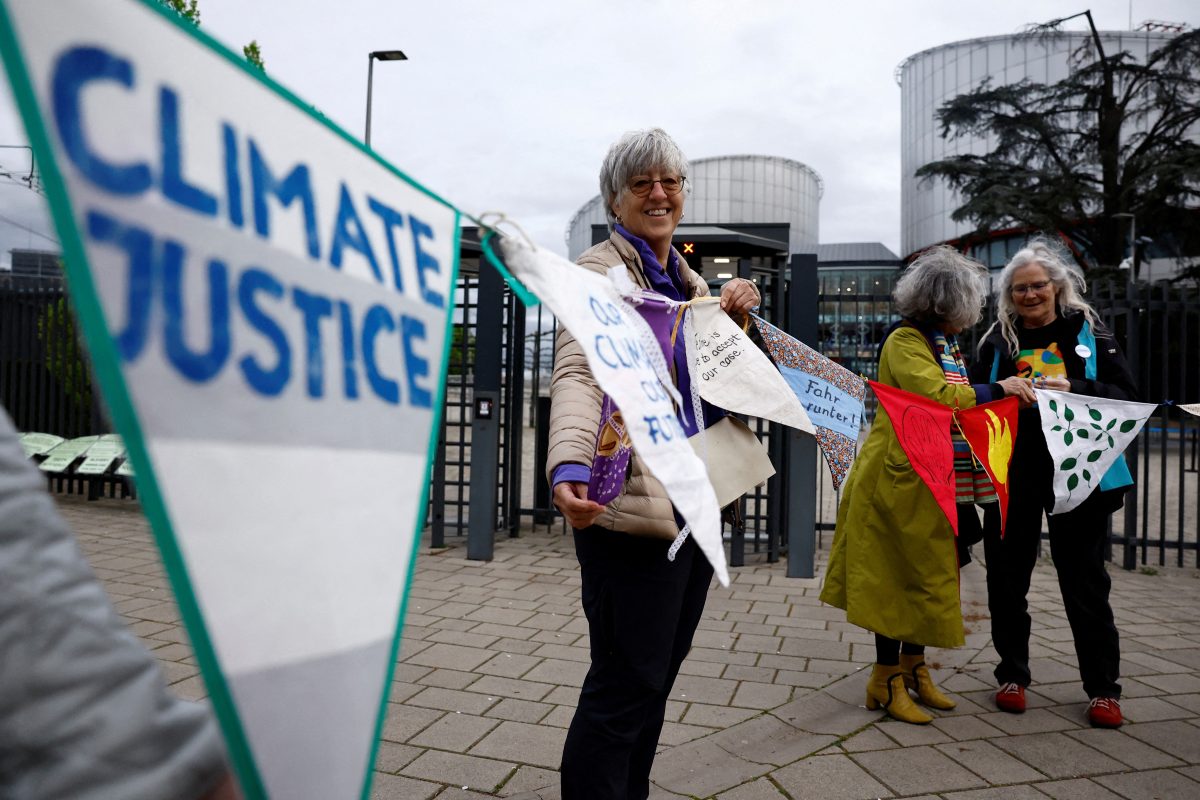BERN, (Reuters) – The lower house of the Swiss parliament voted today to reject a ruling ordering Switzerland to do more to combat global warming in a move that could encourage others to resist the influence of international courts.
In April, the European Court of Human Rights in Strasbourg issued an unprecedented judgment that said Bern had violated the human rights of a group of older Swiss women, the KlimaSeniorinnen, by failing to tackle climate change.
But Bern’s lower house today followed in the steps of the upper house and passed a non-binding motion with 111 votes in favour and 72 against blasting the court’s “judicial activism”. It argued there was no reason to take further action because Switzerland, warming at more than twice the global rate, was already doing enough.
During the debate, lawmakers denounced the court’s “interference” in Swiss democracy and one called the Strasbourg ruling “erroneous” as several older women who brought the case looked on.
One of the members of parliament from the right-wing Swiss People’s Party, which is the biggest party in parliament, appeared to mock the women, criticising them for bringing a case “because they are a bit too hot in the summer”.
Michael Graber, from the Valais canton, was referring to their argument that the government’s inadequate climate policies put them at risk of dying during heatwaves.
“It’s really disgraceful what just happened,” Stefanie Brander, 68, told Reuters after the vote, shaking with anger. “It’s an insult and a lack of respect of our rights which were confirmed by an international court.”
Raphael Mahaim, a lawyer for the women’s group and an MP for the Greens, said: “For me a red line was crossed. It is a dishonour for parliament.” Outside the building, a small group of climate protesters sat held up signs saying “betrayed” “shocked” and “alarmed”.
While the governing Federal Council is free to break with parliament, the environment minister, one of its members, has also appeared to play down the ruling.
Isabela Keuschnigg, legal researcher with the London School of Economics, said that if the government refused to implement the ruling, it could “set a concerning precedent, undermining the role of legal oversight in democratic governance”.
Such an act, if formalised, would be unprecedented in the Council of Europe.
But it would also be evidence of political pushback against international climate action, especially after broad far-right gains in this month’s European parliament election.
The case is part of a raft of climate litigation moving through world courts. Latin America’s human rights court is set to issue an advisory opinion later this year after staging hearings across the region.










